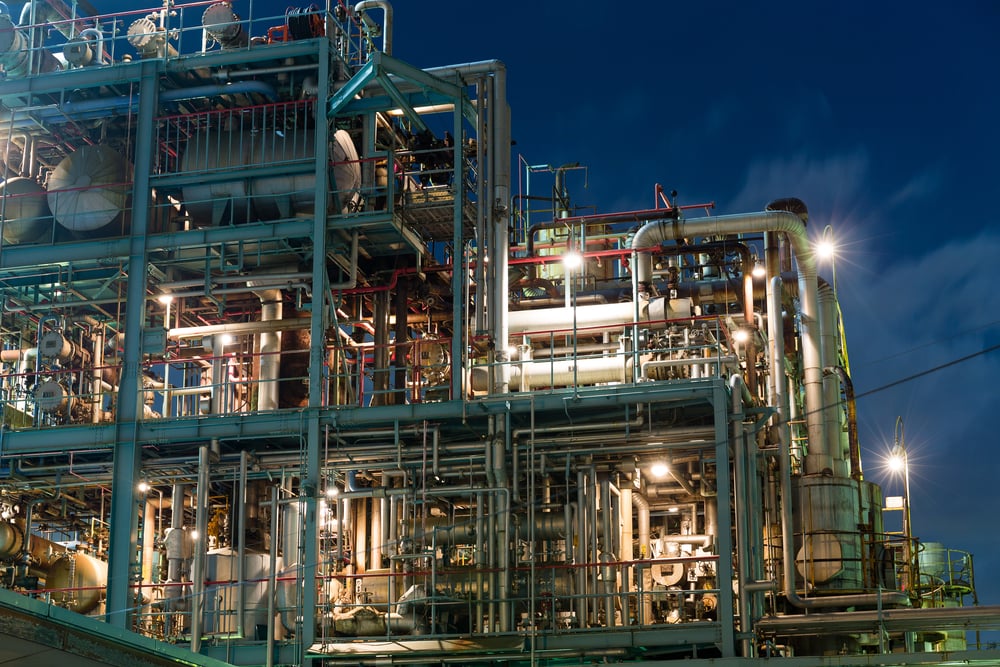Common Oil and Gas Pipeline Jobs
A new study shows that the oil and natural gas industry will play a key role in post-pandemic economic recovery and employs some 11.3 million workers across all 50 U.S. states.
“American natural gas and oil has a presence nationwide, supporting millions of jobs even in states with little to no production,” said the report by the American Petroleum Institute (API) and PricewaterhouseCooper released in July. “The industry touches virtually every facet of our lives, from heating our homes and fueling transportation to supporting the manufacture of products we use every single day.”
Oil and Gas Industry Employs 11.3 Workers in the U.S.
Many of those 11.3 jobs – which represents 5.6 percent of the nation’s total employment – can be found along the oil and gas pipelines which have the vital role of transporting and distributing crude oil, natural gas, and other types of fuel across the country.
The U.S. has almost 10 times more pipeline miles than any other country in the world with more than 2 million miles, according to the World Atlas, and the construction jobs along the pipelines are growing with IBIS World estimating:
- There are 205,132 people employed in the Oil & Gas Pipeline Construction industry in the US as of 2021.
- The number of people employed in the Oil & Gas Pipeline Construction industry in the US increased 4.6% on average over the five years between 2016 and 2021.
- The average Oil & Gas Pipeline Construction business in the US has 87.5 employees.
In addition to those employed in the pipeline construction industry, the API estimates there are another 50,000+ workers with jobs in pipeline transportation.
Pipelines Employ Workers with Diverse Skills
Pipelines require workers with diverse skill sets with the Alaska Department of Labor & Workforce Development estimating 270 different types of jobs involved with oil and gas pipelines.
From welders to pipe layers to design and field engineers, pipeline opportunities abound.
Pipelines require a diverse set of skills from employees. Some jobs will require advanced education or on-the-job training, others require only a high school diploma and on-the-job training will be provided,” says the Houston Chronicle.
Oil Pipeline Employees Make a Yearly Average of $77,675
ZipRecruiter says that as of November 14, 2021, the average annual pay for an oil pipeline job in the U.S. is $77,675 per year.
That annual salary works out to $37.34 per hour, $1,494 per week and $6,473 per month.
ZipRecruiter found oil and gas pipeline salaries:
- Ranging from a low of $19,000 to a high of $156,500
- Majority of oil and gas pipeline salaries fell between $41,500 (25 percentile) and $100,500 (75 percentile)
- Top earners (90 percentile) made $141,500 annually
Most Common Jobs Found Along Oil and Gas Pipelines
The Alaska Department of Labor & Workforce Development says the following occupations are currently priority hiring by the oil and gas industry:
- Electrical and Electronic Engineering Technicians: Apply electrical and electronic theory and related knowledge, usually under the direction of engineering staff, to design, build, repair, calibrate, and modify electrical components, circuitry, controls, and machinery for subsequent evaluation and use by engineering staff in making engineering design decisions.
- Health and Safety Engineers: Promote worksite or product safety by applying knowledge of industrial processes, mechanics, chemistry, psychology, and industrial health and safety laws.
- Operating Engineers and Other Construction Equipment Operators: Operate one or several types of power construction equipment, such as motor graders, bulldozers, scrapers, compressors, pumps, derricks, shovels, tractors, or front-end loaders to excavate, move, and grade earth, erect structures, or pour concrete or other hard surface pavement.
Other common jobs you will find along the oil and gas pipeline:
- Construction Laborers: Perform tasks involving physical labor at construction sites. May operate hand and power tools of all types: air hammers, earth tampers, cement mixers, small mechanical hoists, surveying and measuring equipment, and a variety of other equipment and instruments. May clean and prepare sites, dig trenches, set braces to support the sides of excavations, erect scaffolding, and clean up rubble, debris, and other waste materials.
- Electricians: Install, maintain, and repair electrical wiring, equipment, and fixtures.
- Petroleum Pump System Operators and Gaugers: Operate or control petroleum refining or processing units. May specialize in controlling manifold and pumping systems, gauging, or testing oil in storage tanks, or regulating the flow of oil into pipelines.
- Plumbers, Pipefitters, and Steamfitters: Assemble, install, alter, and repair pipelines or pipe systems that carry water, steam, air, or other liquids or gases.
- Heavy and Tractor-Trailer Truck Drivers: Drive a tractor-trailer combination or a truck with a capacity of at least 26,000 pounds Gross Vehicle Weight (GVW). Requires commercial drivers' license.
- Welders, Cutters, Solderers, and Brazers: Use hand-welding, flame-cutting, hand soldering, or brazing equipment to weld or join metal components or to fill holes, indentations, or seams of fabricated metal products.
The oil and gas pipeline industry is home to many careers including mappers, data analysts, compliance engineers, pipeline integrity engineers and other pipeline inspection roles.
For those starting out, an “apprentice pipeliner” job is a window into the industry with the following responsibilities:
- Learning damage prevention programs including One Calls, Right of Way investigations and maintenance, 3rd Party Crossings, and Property Owner awareness.
- Learning regulatory compliance including environmental, health and safety.
- Training for emergency response.
- Inspecting cathodic protection systems, performing corrosion probes, installing and maintaining test leads, taking cathodic prevention measurements, and inspecting and testing insulating devices.
Contact GeoCorr today to see how our passionate team can provide individual solutions to meet your pipeline inspection needs.


.jpg)